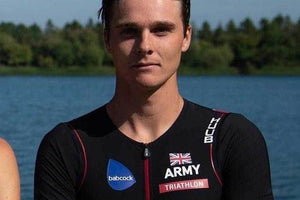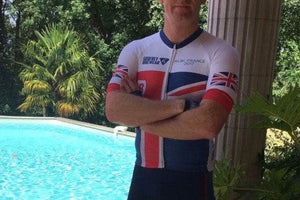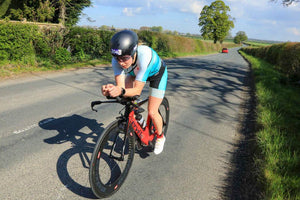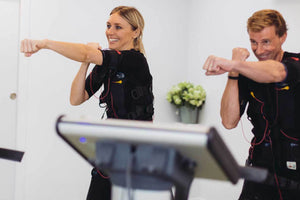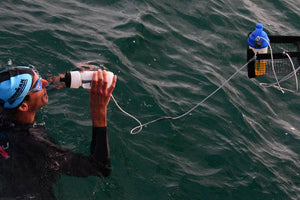We take a look at some of the most common inconveniences and issues that swimmers face when in open water and give advice on how best to tackle them so that you can enjoy and thrive when swimming in open water.

1.Your goggles get knocked off
It's a nightmare situation in an open water swim, especially if you are a contact lens wearer or have sensitive eyes. Having your goggles knocked off your face during the panic and rush of a mass swim start can leave you feeling exposed and frantic, especially if you can't find them again and have to complete the rest of your swim without goggles.
To prevent this situation from ocurring, put your goggles underneath your swim cap so that even if they do get knocked, they won't come all the way off your head and you can pull them back up to your eyes. It's normal and expected to get bashed and knocked around during a mass participation swim such as that of a triathlon, so it's important to be prepared.
Sundried Leged Polarised Swim Goggles

2. The water is too cold
If you live in the UK, it's pretty much expected that the water temperature will be on the chilly side and that it'll probably be a wetsuit-mandatory swim for your triathlon. To stop your head getting cold, double up on swim caps to increase insulation and make sure it's pulled down your forehead to minimise the amount of skin you have exposed to the cold water.
A great idea is to acclimatise first so that the shock of the cold water doesn't make your breathing difficult and irregular. If you can, fully submerge yourself in the water before you begin the race. If you're not allowed to do this, at least splash some water over your head, face, and into your wetsuit so that your body has a chance to get used to it and it's not such a shock when you jump in to start the race.
3. You have a panic attack/feel like you can't breathe
If you're not used to open water swimming, a mass start race can easily induce a panic attack and make you feel like you can't breathe. Make sure you get plenty of practice in open water before you take on a big race to minimise this risk. It's also a good idea to get friends or club mates to make a big splash around you when training so that you can get used to the disorder of trying to find a line, pace, and breathing rhythm amongst the commotion of hundreds of other swimmers.
If you do find yourself struggling to breathe, tread water until you calm down or do some breast stroke to help you relax and find your sight. Stay well away from the pack when starting the race and find your own space.

4. It's hard to navigate without a line to follow
If you do most of your swim training in a pool, you'll be used to having a line to follow on the bottom and you only have to swim in a straight line. When it comes to swimming in open water, going the wrong way and swimming further than you need to is a common mistake and is something you can expect without enough practice.
Make sure you look up from time to time and practice sighting, checking out landmarks on the horizon. Don't just follow the person in front and recce the course before the race so you have a mental plan of where you should be going.
5. You get tired and can't stop to put your feet on the bottom
This is a common worry among those who are new to open water swimming; you feel like you have no safety net and it's scary not being able to touch the bottom. Keep a steady pace and if you get tired, don't be afraid to do some breast stroke or just tread water for a short while.
If you really get into difficulty, lie on your back and float and try to stay calm. However, keep in mind that for triathlon races, if you do this and raise one arm in the air it's a signal to the marshals and paramedics that you need rescuing so this should be a last resort.
6. There are unknown monsters in the deep
Possibly the most common reason for not wanting to swim in the sea or in rivers: not knowing what creatures might be lurking beneath the surface. This is a perfectly rational fear and it's true that there might be things like jellyfish and other marine animals in the water with you.
Unfortunately for this one, the advice is just to keep calm and carry on. A race organiser would not allow you to get into water that has dangerous creatures in it, so try to ignore anything that might be there. Substances like seaweed and waste can be known to get stuck to triathletes when they're swimming, but again, you have to just ignore this and carry on with your swimming. Your wetsuit, goggles, and hat should protect most of your skin from contact anyway.
You can find a comprehensive guide to open water swimming here.












